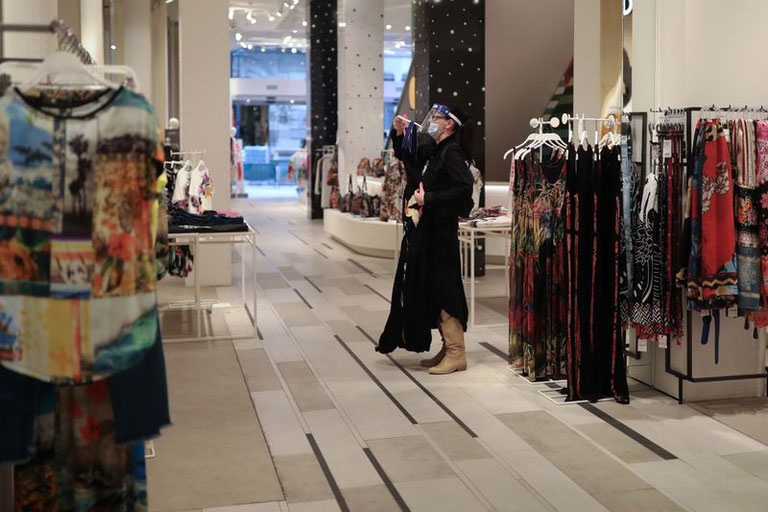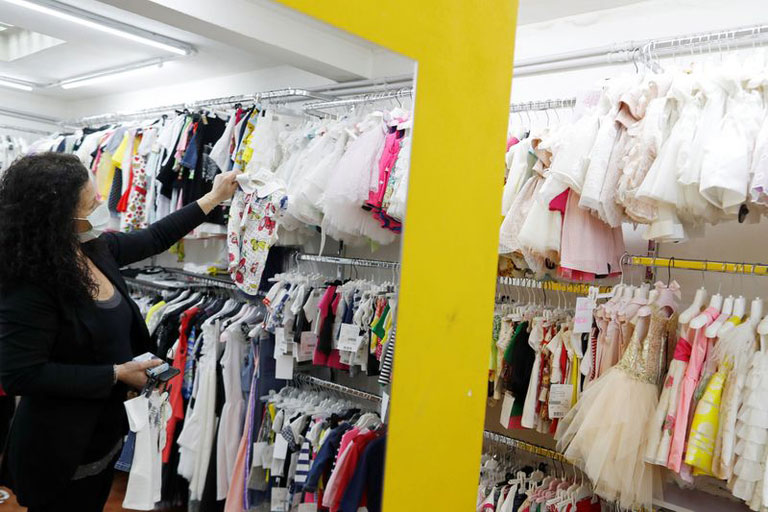How long does the coronavirus remain on clothing?
After the opening of clothing and footwear stores, there are several requirements that customers and owners of premises must take into account to prevent contagion.

© REUTERS / Nacho Doce. It is important to respect preventive measures
Following the opening of clothing stores in CABA and in other cities in the country, there are many precautions that people should take into account when buying a garment in a store and then taking it home as well as in the in case the consumer wants to make a return.
The COVID-19 coronavirus is a respiratory disease, which is typically spread by droplets in the air. When an infected person coughs or sneezes, the droplets carrying viral particles can fall into another person's nose or mouth or be inhaled.
However, a person can also contract the new coronavirus by touching a surface or object that has viral particles and then touching their mouth, nose, or eyes, according to the Centers for Disease Control and Prevention.
The exact life span of the virus on a surface - a pole, cloth, or even money - depends on many factors, including temperature, humidity, and the type of surrounding surface.

© REUTERS / Yara Nardi. People should take precautions to prevent the spread of the coronavirus COVID-19
Despite the fact that with fabrics it is not clear how long viruses can last, according to Mayo Clinic they usually last less time compared to hard surfaces such as stainless steel, that is, it all depends on what material the fabric is made of.
"There is no consensus yet on how long the virus lasts on clothing. However, it is important to understand that there are many factors such as the use of public transport, driving on the street, among others, that may not necessarily coincide with the results of a scientific study, ”infectious medicine doctor Cristina Freuler explained to Infobae ( MN 58098), head of the internal medicine department of the German Hospital.
In this sense, the specialist pointed out that if the virus really lives for a long time in clothing, it is vital that the person avoid putting their hands to their faces and constant hand hygiene: “The skin is impervious, therefore, the virus it will only enter if the person touches his face ”.
For Cirlia Alvárez, infection control nurse and member of the FUNCEI epidemiology and infection control working group, there is very little evidence on how much and how COVID-19 survives in clothing, but it is the same research that They suggest that its presence can be eliminated by washing clothes with soap and water.







